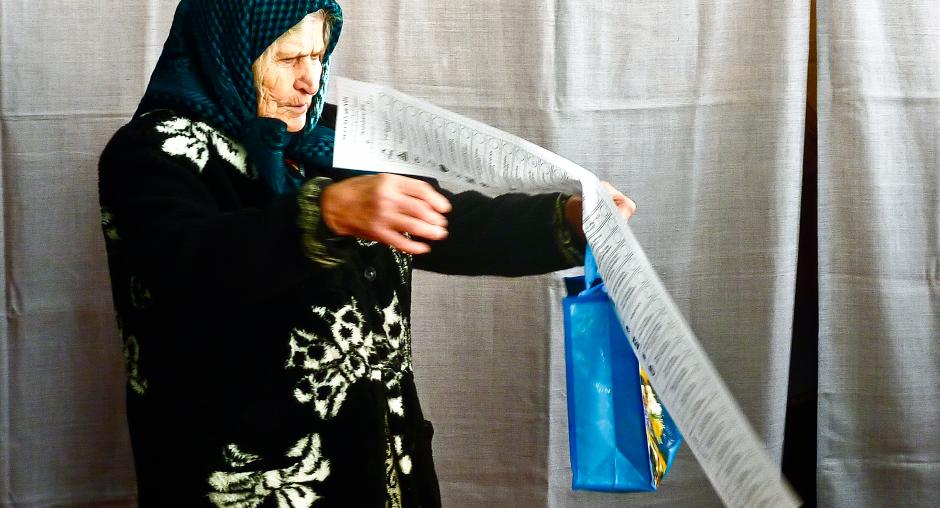Early Parliamentary Elections, 28 November 2010

Type:
Country:
Mission at a glance
- Head of Mission: Peter Eicher (United States)
- 12 team members from eight OSCE participating States
- 20 long-term observers
- 200 short-term observers
Mission schedule
- 25 October: Mission opens
- 28 October: Deployment of long-term observers
- 28 November: Election day
- 29 November: Press conference in Chisinau
Following an official invitation from Moldova's Central Election Commission, ODIHR deployed an election observation mission to observe the 28 November early parliamentary elections.
Headed by Peter Eicher of the United States, the mission included 12 international staff based in Chisinau drawn from eight OSCE participating States.
For election-day observation, the mission joined efforts with observer delegations from the OSCE Parliamentary Assembly, the Parliamentary Assembly of the Council of Europe, and the European Parliament. Together, they deployed some 339 international observers from 45 OSCE participating States.
According to the mission's final report: "These early parliamentary elections met most OSCE and Council of Europe commitments. The elections were administered in a transparent and impartial manner by the Central Election Commission (CEC), which enjoyed the trust of most contenders. A diverse field of candidates provided voters with genuine choice. The media provided a broad range of political views and election information. Civil and political rights were respected during the election campaign. Nevertheless, further efforts are needed to strengthen public confidence in the democratic process."
Long-term observation
ODIHR conducted a needs assessment mission (NAM) from 13 to 15 September 2010 in order to assess the conditions and preparations for the elections and to advise on the level of ODIHR involvement in the forthcoming elections. The NAM recommended that a standard election observation mission be deployed.
The EOM, headed by Peter Eicher of the United States, consists of 12 international staff based in Chisinau drawn from eight OSCE participating States. ODIHR has requested that OSCE participating States second 20 long-term observers, who are expected to arrive by 26 October and to be deployed throughout the country on 28 October.
The mission will assess the elections for compliance with principles for democratic electoral processes, including commitments agreed to by all the OSCE participating States, as well as national legislation. Observers will closely monitor campaign activities, media coverage, the legislative framework and its implementation, the media situation, the work of the election administration and relevant government bodies, and the resolution of election disputes.
Election day
ODIHR will request 200 short-term observers to be deployed immediately prior to the 28 November elections. The short-term observers will be deployed throughout the country in multinational teams of two to monitor the opening of polling stations, the voting, the counting of ballots, and the tabulation of results.
For these elections, the ODIHR election observation mission will join efforts with delegations from the OSCE Parliamentary Assembly and other parliamentary groups. The mission, together with parliamentary partners, will issue a statement of preliminary findings and conclusions on the day after the elections. ODIHR will issue a final report about two months after the end of the electoral process.
Previous elections
ODIHR has observed a number of electoral events in Moldova, including the presidential election in 1996, parliamentary elections in 1998, 2001, 2005, and 2009, as well as local elections in 2003 and 2007.
